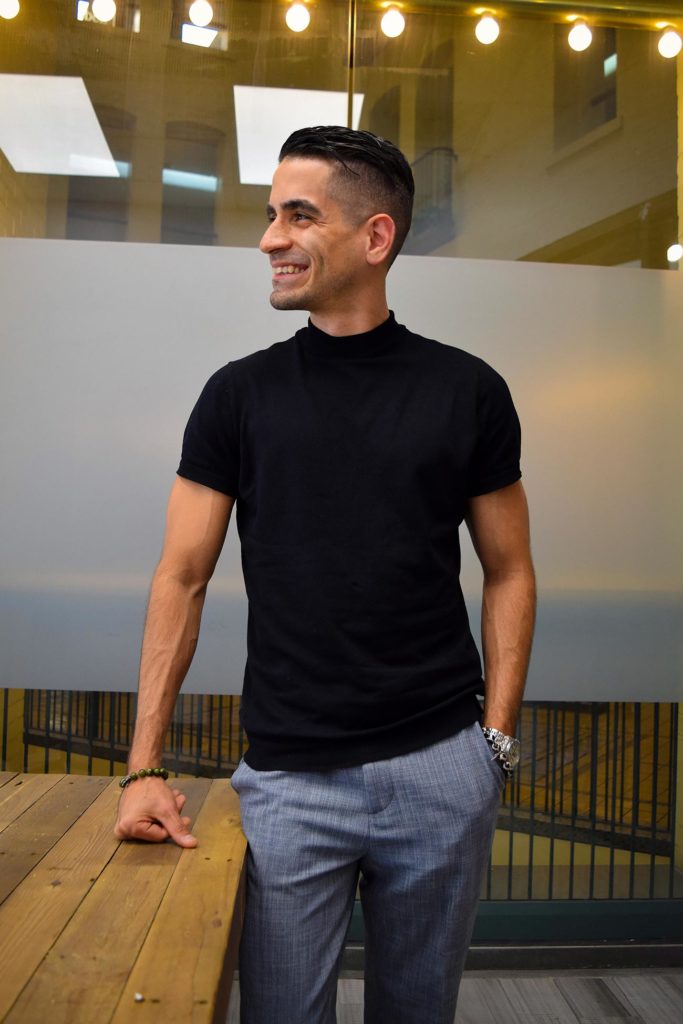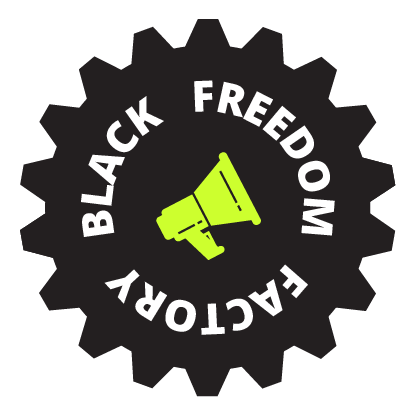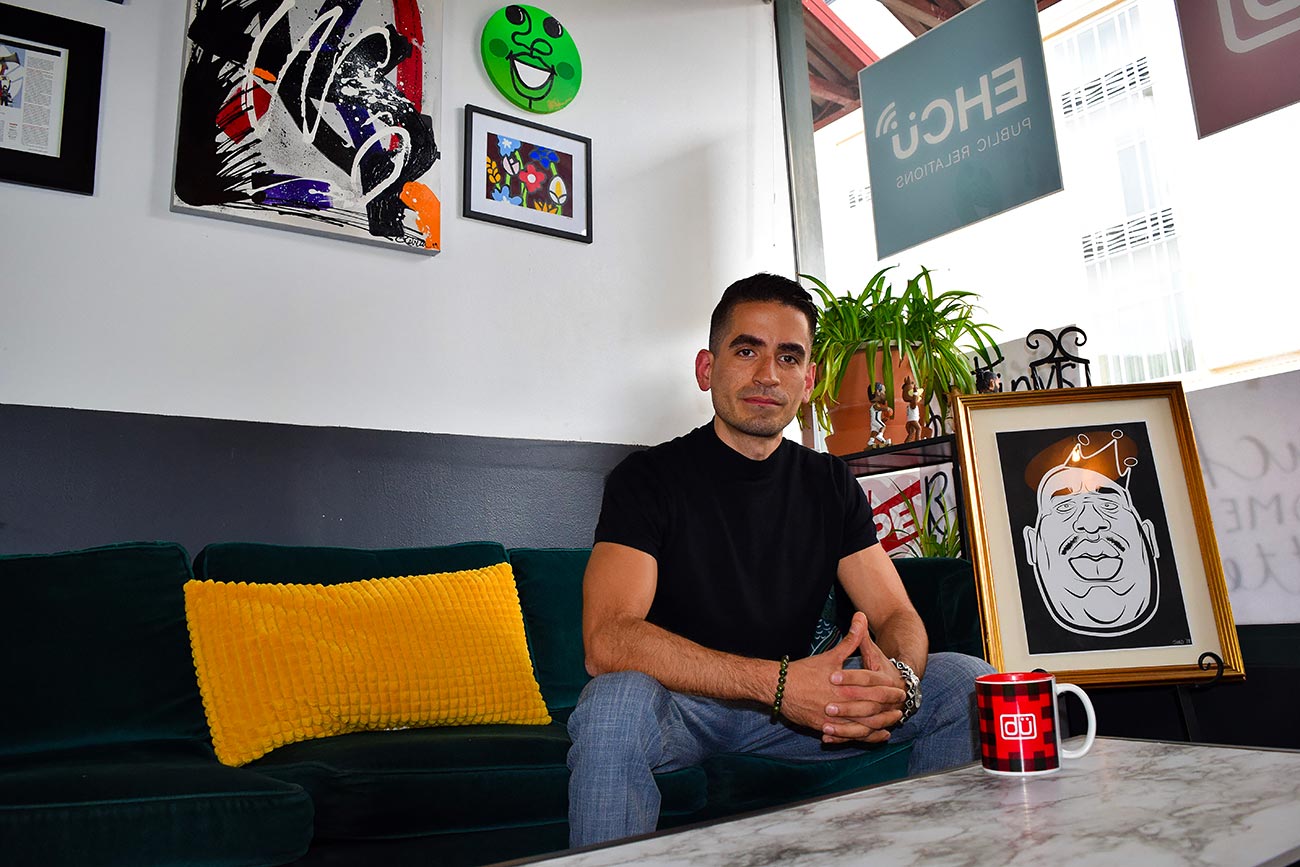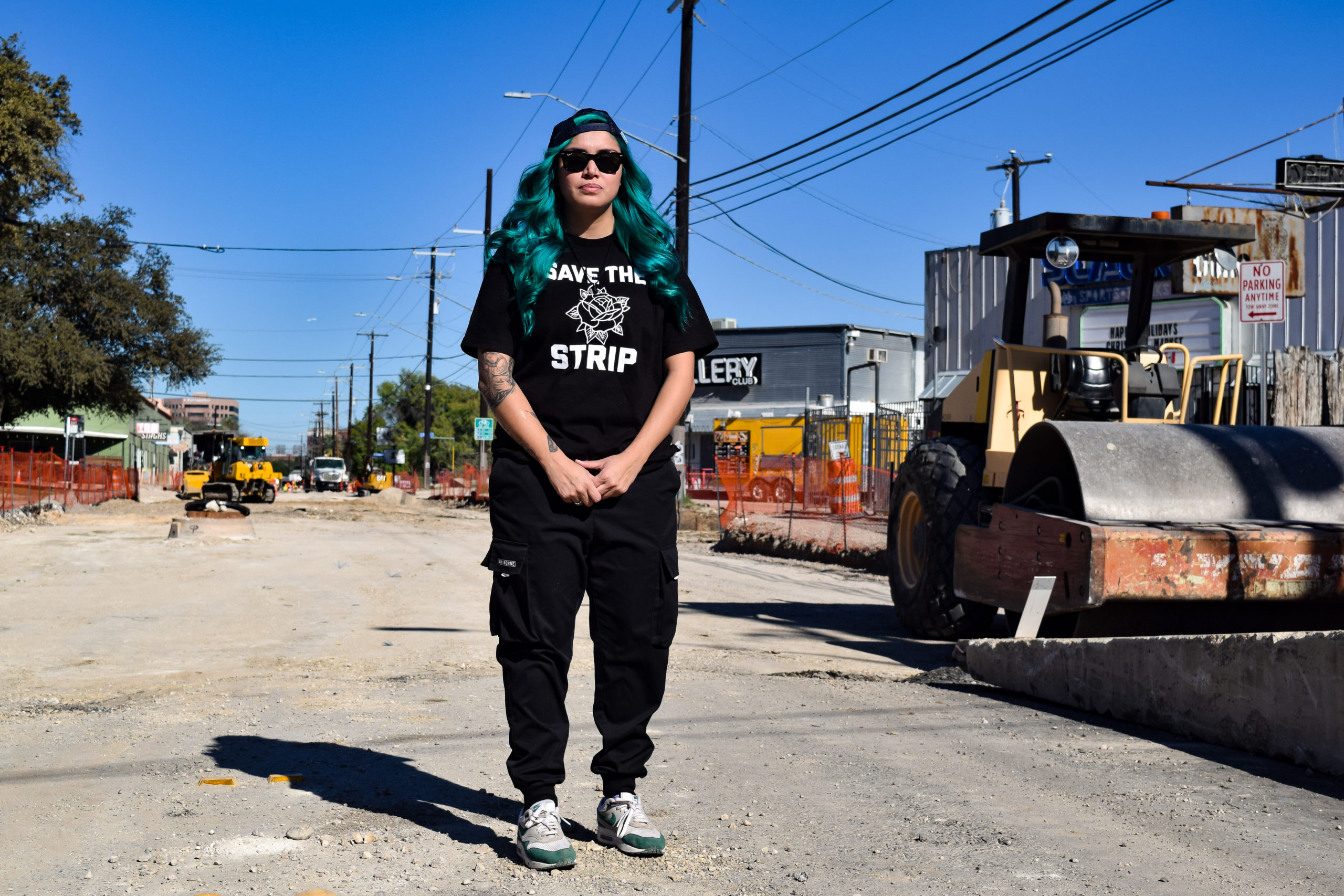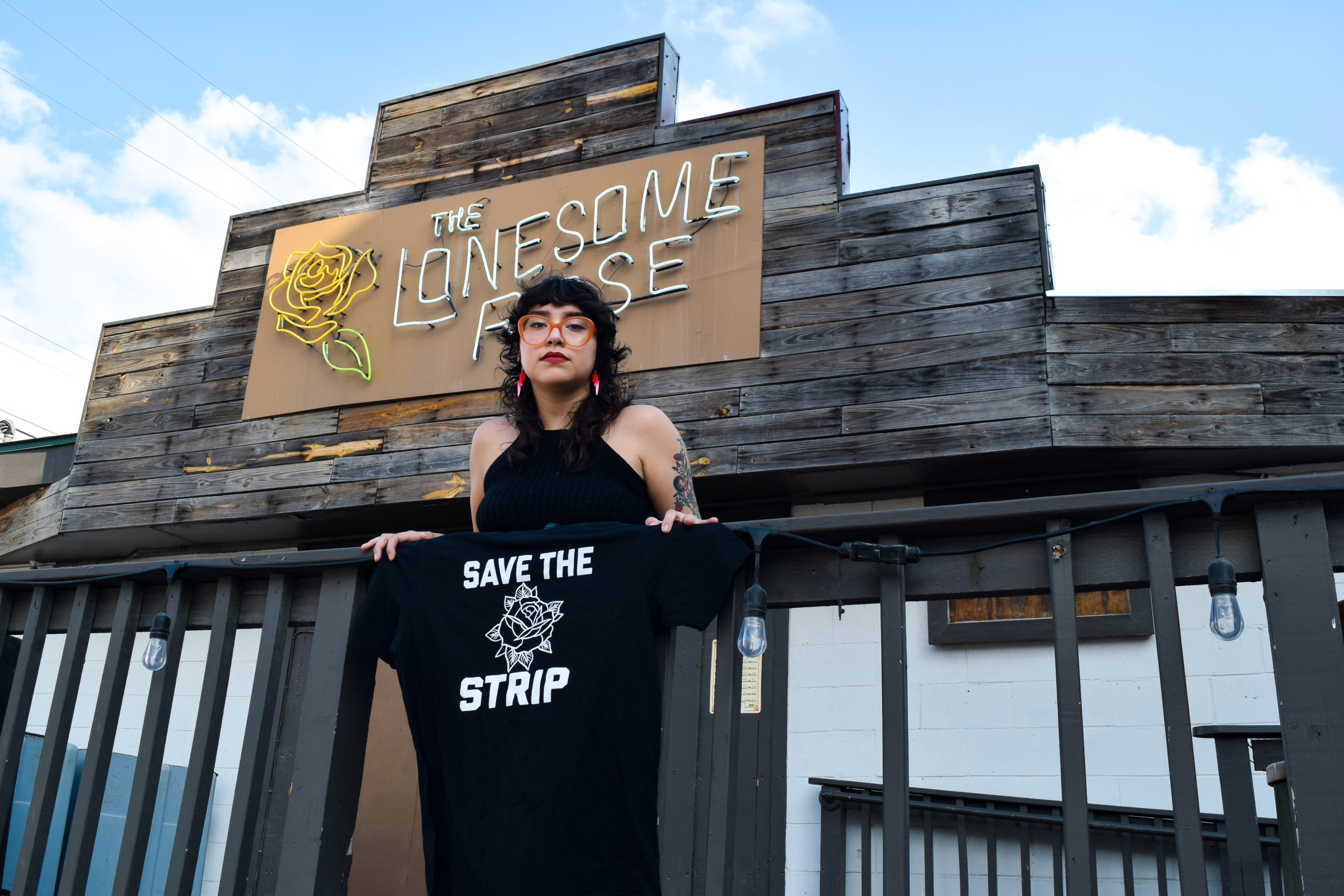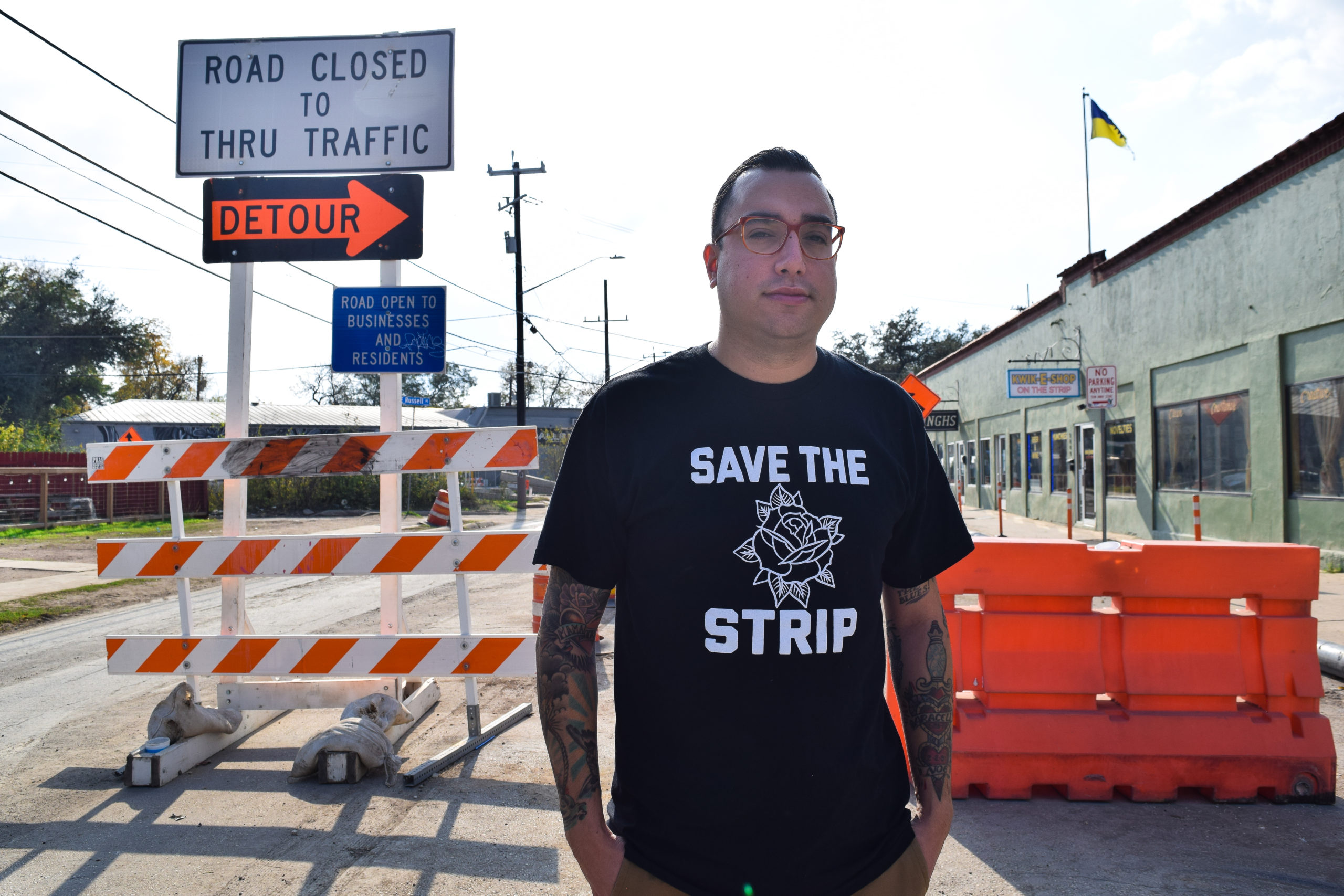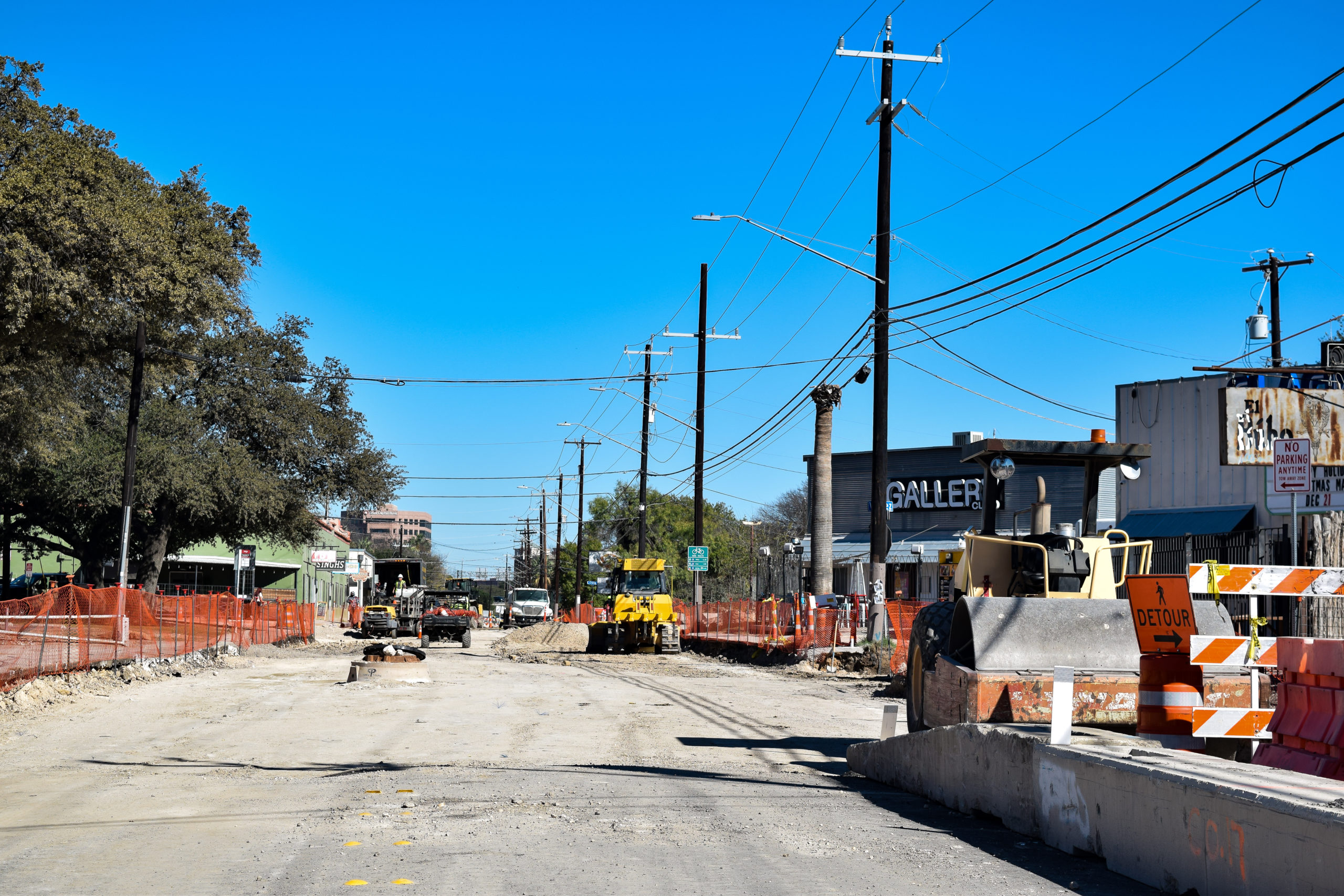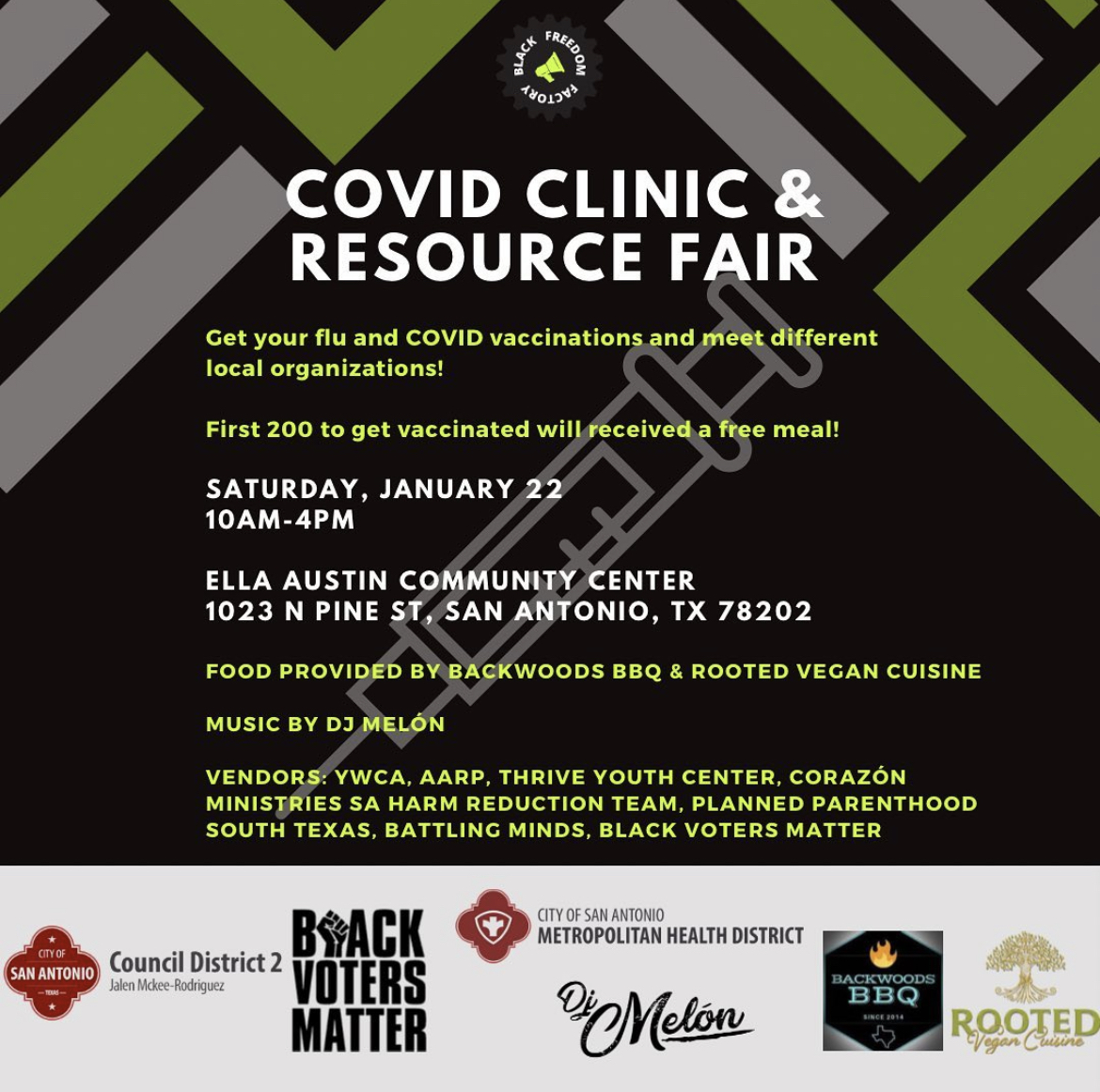The Redefining Professionalism series exists to amplify the diverse individual experiences of entrepreneurs in the Boardroom across the city.
Xenophobia, the dislike of or prejudice against people from other countries, has been an uphill battle for workers in professional settings for centuries since the establishment of the United States. Although the Equal Employment Opportunity Commission, along with several other policies combating the discrimination of religion, ethnicity, or cultural background exist today, Black Freedom Factory recognizes the importance of how redefining professionalism means acknowledging stories of discrimination.
Meet Mohammad Rasool – University of Illinois Alumni, Chief Innovation Officer of Düable Brand Trust, Campaign Manager of District 1 Councilmember Roberto Treviño, and formerly Digital Communications advisor for a number of local elected officials including Texas State Representative for HD 123 Diego Bernal.
Rasool is also a First-Generation son of immigrant parents. His perspective about local politics, Xenophobia in boardroom settings and work that needs to be done in the City of San Antonio Redefine Professionalism everyday.
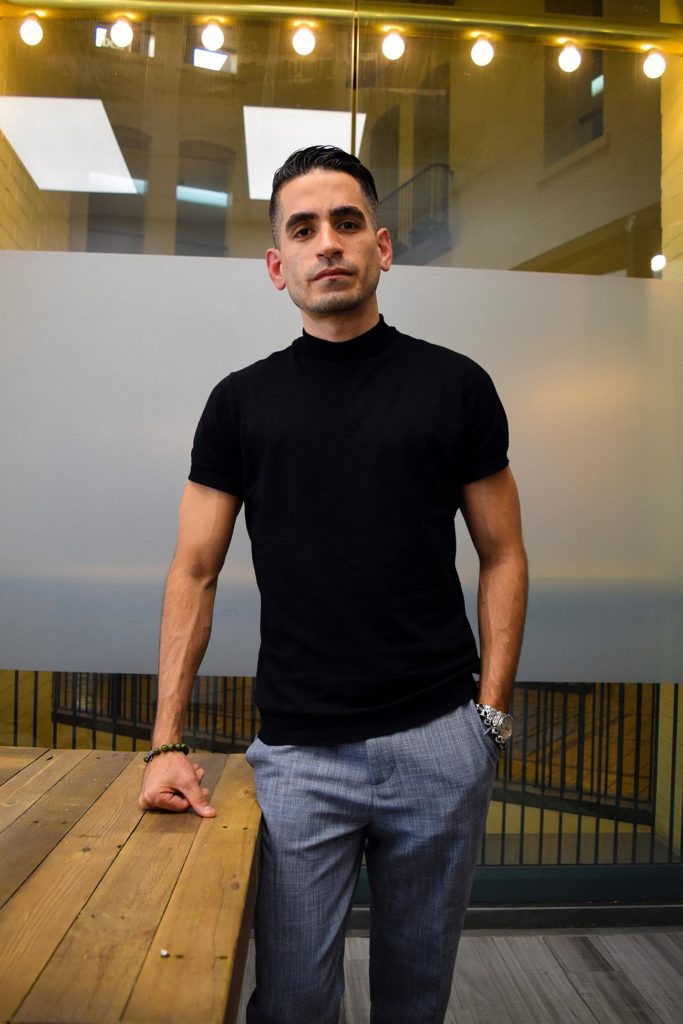
What do you ethnically identify as?
“A mentor of mine once told me, ‘never say you’re half of anything, share all of who you are.’ So in that sense, my father is from Afghanistan and my mother is from Ecuador. So I am a lot of things ‘ethnically’ speaking, but that includes South American, Latino, Middle-Eastern, Persian, Semitic, American.”
How do each of your identities contribute to your understanding of American Politics?
“America has a culture that is obviously dominated by whiteness. Being a First-Generation person, I am caught in identity borderlands. I wouldn’t be considered either Afghan or Ecuadorian enough in those countries, and I’m not white enough to be considered part of the mainstream culture here. I’ve always been in a place of not having a solid understanding of the culture I’m living within. But that’s America.
People value their roots grown here in American culture — more so than what you can bring from another culture. But since I’ve always been at the intersection of polar-opposite cultures, understandings, and religions, I have never had traditional roots.”
How has this shaped your identity in terms of career path?
“Being an entrepreneur, you never really define yourself as one thing. You always have the opportunity to grow and pivot. I was always destined to be who I am – my mother and father have always been entrepreneurs that sought after every possible opportunity.”
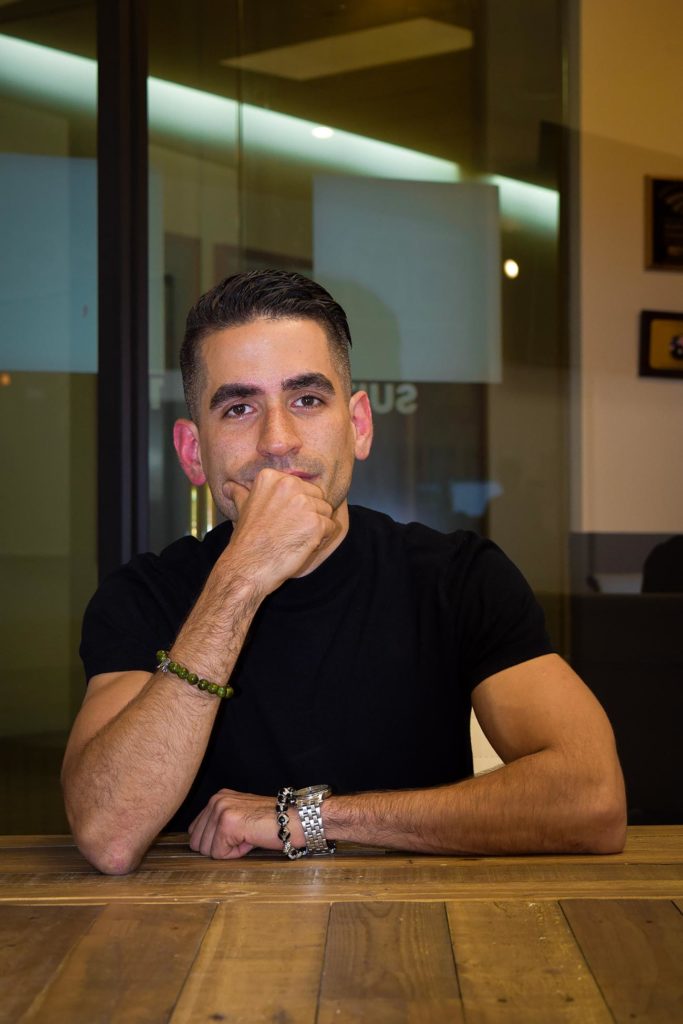
What’s First-Gen In the Boardroom?
“Being an immigrant has meant living with a ‘charting your own path’ kind of mentality because I don’t have roots here in America. There aren’t generations of folks that have pre-conditioned me about the path that I ‘need’ to follow. I am making decisions day-to-day and I am having to figure everything out myself because my parents’ cultures are different from the one here.
Being First-Gen means being untethered – not tied down to anything. Choosing who you want to be, where you want to be and making your own mistakes. You have to make mistakes.
For example, I started my career in web design. From there I decided to do coding, then messaging and eventually consulting. So I was able to move between the different aspects of marketing and digital components and map-out where I could get the most done while doing the most good.”
What has your experience been with Xenophobia in the Boardroom?
“My father always wanted to be a successful businessman. I mean, in capitalist America, who could blame him? And so I grew up with the mentality that business was the only way to break the chains and to become wealthy. He never achieved what people would call wild success, but nonetheless, he passed down something much more important than money to me and my sisters. His moral values were always on display when he conducted himself. He never stole a dollar from folks or overcharged for what he was able to do. And he instilled those values in me. So I have to thank him. He showed me that no matter the situation, no matter the cost, no matter the reward, staying true to your values was the key to living a full life. And I have no choice but to believe that influence came from his upbringing and culture — one outside of the US.
This culture around us is one of take, take, take. That’s something I’ve had to endure. Many people have tried to tell me that my company needs to charge more. That we need to stop working with low budget clients. That we need to look beyond helping people who have more heart than resources. I can see where they are coming from, but I have to disagree. And doing it our way has led to our success. Just like my father, it isn’t about making the most money, but doing the most good.
When I first got to San Antonio at 26, I would be sitting in boardrooms with big-time business folks and I would think, ‘Wow. This person has got to have it all figured out.’ But over time, reality started to set in. I would hear horrible things come out of these peoples mouths. Now reflecting back at the age of 35, I feel as though I’ve hit my limit. And I am blessed to be able to hold people accountable at this point due to the reputation we have garnered, the realizations we have had and the milestones we have accomplished.
The rampant racism, sexism, xenophobia, transphobia, homophobia is huge. It is all constant and consistent in boardrooms. I have heard councilmembers say that they don’t trust people in their own communities because they’re going to steal, or don’t have moral compasses. I’ve heard respected tech and business leaders state their desire to “punch that lady in the mouth.”
It has struck me as odd because my mother and father never let go of their moral values – ethics has always been of utmost importance for them despite the challenges they have faced.
I mean, I love San Antonio. I have made this place my home. But at the same time, my not being from here has revealed a strange sort of entitlement from folks who are born and raised here. It is reminiscent of localized Xenophobia. And the perpetuation of different supremacies within racial and ethnic groups happens all the time against folks from different places and cultures. My being a First-Gen child of immigrants gives me a very different perspective. I don’t have expectations of what I deserve because I literally don’t have the experience. So watching others around me feel entitled to respect, or positions of influence, or to have their voices heard above others simply because of who their parents or grandparents are really gets to me.”
How did you make your way to San Antonio?
“It was really by chance, Brielle and I both had an entrepreneurial mindset – we were tired of doing the same thing every single day. My idea was stolen from a major company that I worked for, and out of that experience, we took to the market in San Antonio for web design.”
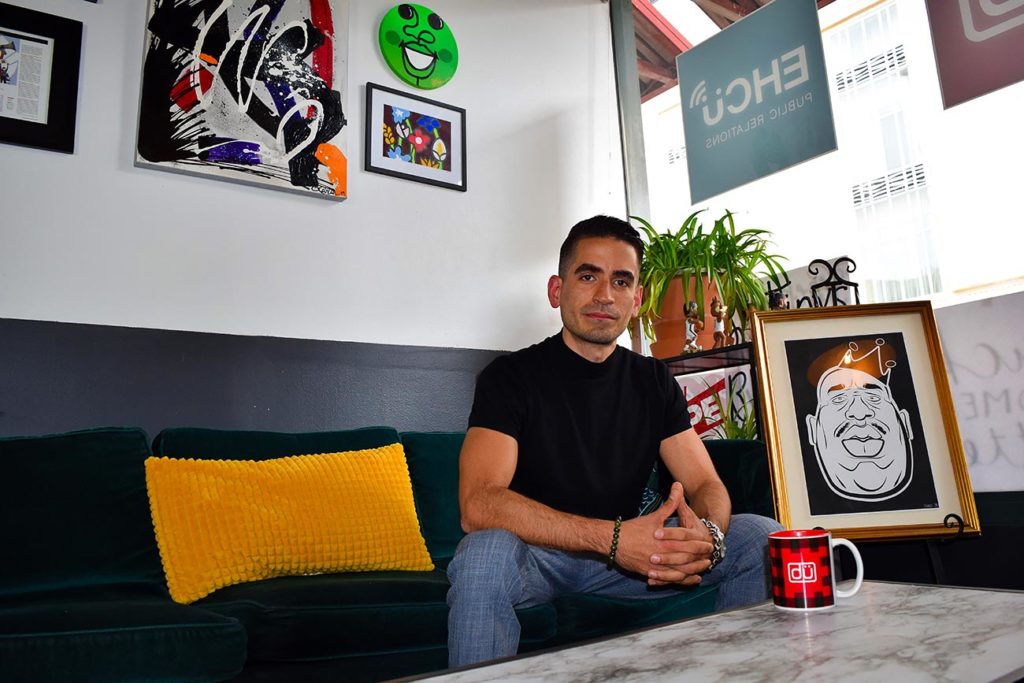
What advice would you want to give First-Generation Entrepreneurship?
“Entrepreneurship is romanticized – it is not what people think it is. I would share the opposite of advice. Entrepreneurship is taking a road of not being advised. Doing what you want to do, taking on your passion and turning that into a project.
And it took me a long time to realize this, but being First-Gen is a superpower. It forced me to make my own path and learn from my own experiences. Even though it has brought to light objectively negative behaviors and acts of othering that I have experienced, it has still taught me so much.
Never make a decision based on what anybody else tells you — only decide once you place their words against your own consciousness. You are the product of generations of conditioning, indoctrination, and being told what to do. That type of conditioning cannot be reversed in one lifetime. So it’s your responsibility to take the steps necessary to do that for yourself. Remember that ‘normal’ is a completely subjective term.”
What do you want to see from the community?
“I grew up housing insecure my entire life. My family was homeless for periods at a time. We were roommates to a family in the projects, and we’ve been clothed and housed by the church.
I feel like what’s missing here in San Antonio are enough people in leadership capacities that have an understanding of what being houseless actually means for folks. The trauma. The fear. The anxiety. We are the most socioeconomically segregated city in the country – that statistic is constantly thrown out there. And while the blame is tossed around, if I could, I would build a mirror that is 300 miles long and wide, and I would hold it up and challenge people with power and influence to take a look at themselves.
The people who don’t let others in. The ones who ignore the people who need the most. That is unfair.
And City Hall’s measurement of giving back is often the mentality of ‘Look at how many people we fed. Look at how many people we have helped.’ But what has failed to be acknowledged are why the lines for aid are so long in the first place.
It is because of the neglect that folks in socioeconomically segregated areas of the city have faced for decades – not just during COVID-19.
I absolutely want to see more from the city on houselessness.
I am a living example of being failed by the system – my family wasn’t houseless because we didn’t work or earn our place. It is because the system failed to provide a safety net for people like us who were victims of a rigged,political game.
People often ask me why I’m involved in politics. Why do I put myself through the pain and misery that I have once endured? At the end of the day, my goal is simple – I want to do everything I can to help folks in the heart-breaking position that my family was once in.”
